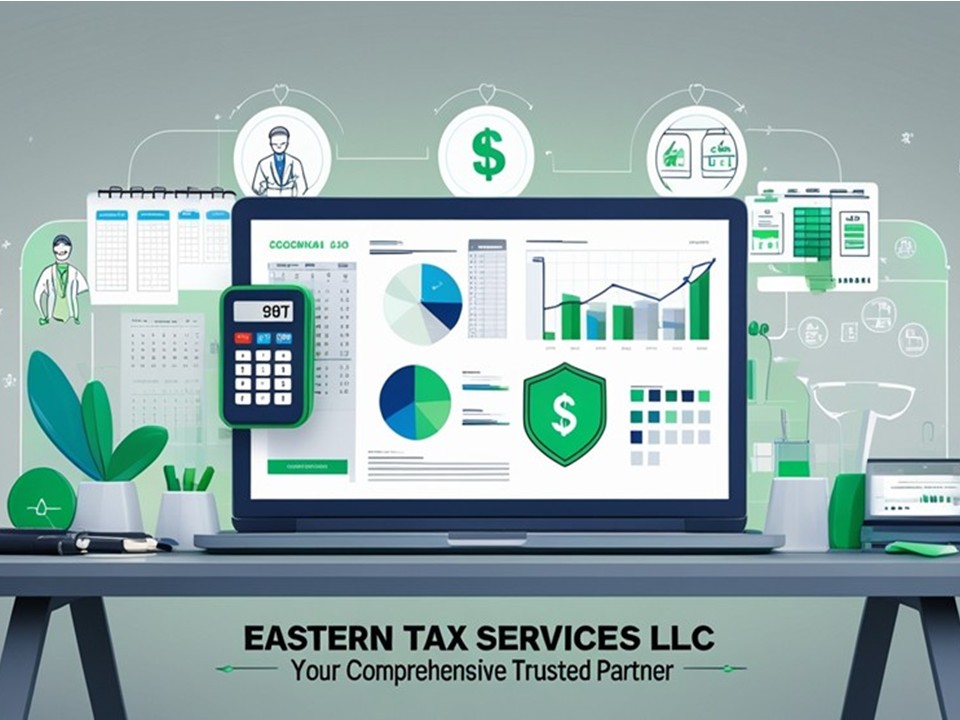
Frequently Asked Questions
1. What types of clients do you work with?
We work with a diverse range of clients, including individuals, small businesses, corporations, and non-profits across various industries. Our services are tailored to meet each client’s unique needs and objectives.
2. What services do you offer?
We provide comprehensive financial and tax services, including tax preparation and planning, bookkeeping, financial statement preparation, audit support, and business advisory solutions.
3. How do I know if I need an accountant or a tax professional?
An accountant is ideal for financial planning, record-keeping, and tax compliance, benefiting both businesses and individuals. If you want to optimize your finances, ensure regulatory compliance, and plan strategically for the future, an accountant or tax professional can be invaluable.
4. Can you help with tax planning and minimizing taxes?
Absolutely. We specialize in tax planning strategies designed to help you legally reduce your tax burden. Our team works with you year-round to identify deductions, credits, and planning opportunities that align with your financial goals.
5. What are your fees, and how are they structured?
Our fees depend on the complexity and scope of the services you require. During your initial consultation, we’ll assess your needs and provide a transparent fee estimate, ensuring no hidden costs.
6. Is my information secure when I work with you?
Yes, safeguarding client information is our top priority. We employ advanced security measures and strictly adhere to confidentiality standards to ensure your financial data is protected.
7. How do you handle virtual services and remote clients?
We leverage secure online platforms to offer seamless virtual services. Clients can easily share documents, communicate with our team, and manage tasks from the comfort of their home or office, ensuring convenience and security.
8. How can you help me set up my new business?
We provide comprehensive startup advisory services, including guidance on selecting the right business structure, tax registration, setting up accounting systems, and creating a roadmap for financial growth.
9. How often should I update my bookkeeping and financial records?
To maintain accuracy and gain timely financial insights, bookkeeping should ideally be updated monthly. Regular updates facilitate effective tax planning, cash flow management, and informed decision-making.
10. What should I bring to my first meeting with your firm?
For individual tax services, please bring your previous year’s tax returns, income statements, and other relevant financial documents. Business clients should bring financial statements, tax identification numbers, and any records pertaining to their financial goals.
